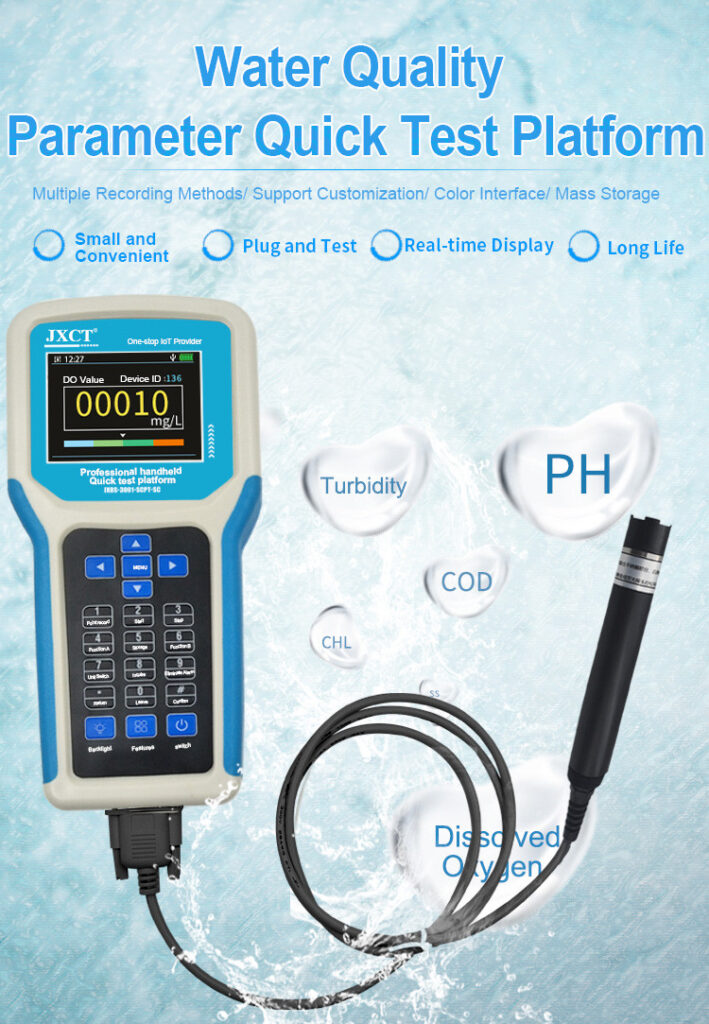Water quality sensors are essential tools for monitoring and assessing the condition of water resources. They play a crucial role in ensuring the safety of drinking water, protecting aquatic ecosystems, and promoting sustainable water management practices. This article explores the latest advancements in water quality sensor technology, highlighting their significance in safeguarding our water supplies.

Importance of Water Quality Sensors:
Water quality sensors provide real-time data on various parameters to assess the physical, chemical, and biological characteristics of water. These sensors help identify potential contaminants, detect changes in water composition, and monitor the overall health of aquatic environments. Accurate and reliable water quality measurements are vital for addressing pollution concerns and maintaining the sustainability of water resources.

Optical Water Quality Sensors:
Optical water quality sensors utilize the principle of light absorption or scattering to measure key parameters such as turbidity, dissolved oxygen, and chlorophyll content. These sensors offer high precision, rapid response times, and wide measurement ranges. They are widely used in environmental monitoring, wastewater treatment plants, and drinking water quality assessment.
Electrochemical Water Quality Sensors:
Electrochemical water quality sensors use electrodes to measure various parameters, including pH, conductivity, and oxidation-reduction potential. These sensors provide accurate and robust measurements, even in challenging environmental conditions. They are commonly employed in industrial processes, aquaculture, and research laboratories to monitor water quality and ensure regulatory compliance.
Biosensors for Water Quality Monitoring:
Biosensors are emerging as a promising technology for water quality monitoring. They utilize biological components, such as enzymes or antibodies, to detect specific contaminants or pathogens in water samples. Biosensors offer high sensitivity, selectivity, and specificity, enabling the early detection of pollutants and harmful microorganisms. They find applications in both field-based and laboratory-based water quality analysis.
Integration of Wireless and IoT Technologies:

Advancements in wireless and Internet of Things (IoT) technologies have enabled the development of smart water quality sensor. These sensors can transmit real-time data wirelessly, allowing remote monitoring and analysis. The integration of IoT also facilitates data integration from multiple sensors, creating a comprehensive picture of water quality in a particular area. This information aids in making informed decisions for managing water resources effectively.
Applications in Water Resource Management:
Water quality sensor have diverse applications in various sectors. In municipal water treatment plants, these sensors ensure the safety and compliance of drinking water by continuously monitoring parameters such as disinfection by-products and chemical contaminants. In agriculture, water quality sensor help optimize irrigation practices and prevent excess nutrient runoff. Furthermore, they play a vital role in protecting fragile ecosystems by monitoring the health of rivers, lakes, and coastal areas.
Advancements and Future Trends:
Ongoing research aims to enhance the accuracy, reliability, and affordability of water quality sensor. Advances in miniaturization and sensor packaging allow for the deployment of sensors in remote or hard-to-reach locations. Additionally, efforts are being made to develop multi-parameter sensors capable of measuring multiple water quality indicators simultaneously. Artificial intelligence and machine learning techniques are also being integrated into sensor systems to improve data analysis and prediction capabilities.
Conclusion:
Water quality sensor are indispensable tools for monitoring and managing our water resources effectively. The advancements in sensor technology, including optical, electrochemical, and biosensors, along with wireless and IoT integration, have revolutionized water quality assessment. By providing accurate and real-time data, these sensors enable the protection of public health, preservation of ecosystems, and sustainable use of water. Continued innovation and investment in water quality sensor research will contribute to a safer and more sustainable future for our water resources.
